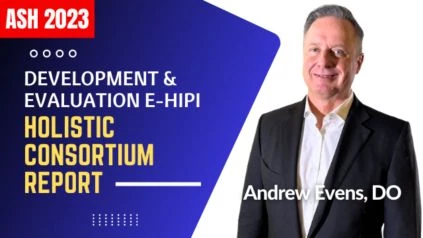In an interview, Andrew Evens, DO, an expert in hematology and oncology, will discuss a study on predicting progression-free survival (PFS) in early-stage Hodgkin lymphoma (E-HL). Dr. Evens, a seasoned researcher and clinician, will provide insight into the E-HIPI model, which identifies factors such as nodal location, sex, and key continuous variables as essential in prognosticating PFS.
When asked for a brief overview of the study, Dr. Evens will share insights into the research’s significance and potential implications for oncology. Regarding the E-HIPI model, he will elaborate on how factors like nodal location, sex, and key continuous variables contribute to predicting PFS in early-stage Hodgkin lymphoma. The interview will explore whether these identified factors offer insights into potential avenues for personalized treatment approaches.
A critical aspect to be addressed involves the external validation cohort, where the E-HIPI model exhibited a C-statistic of 0.63. Dr. Evens will discuss the implications of this performance metric and its relevance in predicting PFS in E-HL. The interview will also delve into plans for further refinement or calibration of the model based on external validation results and ongoing assessments of time-dependent covariates.
The conversation will address the ongoing assessment of differential prediction between early and later PFS events, specifically within the 2-5 year timeframe. Dr. Evens will share insights into preliminary findings and considerations regarding time-dependent covariates. Moreover, the interview will explore how understanding these dynamics might impact the refinement or future applications of the E-HIPI model in clinical practice.
In this interview, Andrew Evens, DO, will navigate the study’s complexities, providing knowledge and expertise on the E-HIPI model and its implications for progression-free survival in early-stage Hodgkin lymphoma.

